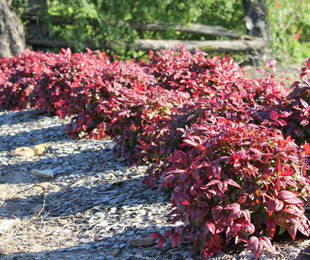Array
(
[0] => Array
(
[id] => 199
[is_published] => 1
[websiteID] => 5
[url] => /gardening/gymea-lilies.php
[page_status] => Published
[number_of_ads] => 5
[can_use_editor] => 1
[last_modified_date] => 2013-09-16 00:00:00
[last_modified_by] => Alan
[checked_for_duplicate_content] =>
[title] => Gymea Lilies - Doryanthes excelsa
[heading] => Gymea Lilies - Doryanthes excelsa
[meta_description] => Everything about the Gymea lily (Doryanthes excelsa) is larger than life. The bold foliage can reach over four metres in height and some majestic flower stems can reach over ten metres tall.
[article_category_1] => Gardening
[article_category_2] =>
[article_category_3] =>
[article_category_4] =>
[article_category_5] =>
[business_category_1] => Landscaper
[business_category_2] => Nursery
[business_category_3] => Garden Designer
[business_category_4] => Landscape Architect
[business_category_5] =>
[number_of_google_mrecs] =>
[show_google_ad_bottom_of_page] =>
[show_get_quotes_top_of_page] =>
[show_get_quotes_rhs_of_page] =>
[show_directory_search_widget] =>
[show_trending_content_widget] =>
[show_facebook_widget] =>
[show_further_reading_section] => 1
[show_sponsors_section] => 0
[show_top_article_ad] => 1
)
[1] => Array
(
[id] => 523
[is_published] => 1
[websiteID] => 5
[url] => /gardening/ground-covers.php
[page_status] => Published
[number_of_ads] => 3
[can_use_editor] => 1
[last_modified_date] => 2013-09-16 00:00:00
[last_modified_by] => Alan
[checked_for_duplicate_content] =>
[title] => Ground covers
[heading] => Ground covers
[meta_description] =>
[article_category_1] => Gardening
[article_category_2] =>
[article_category_3] =>
[article_category_4] =>
[article_category_5] =>
[business_category_1] => Landscaper
[business_category_2] => Garden Maintenance
[business_category_3] => Garden Supplies
[business_category_4] => Garden Designer
[business_category_5] => Garden Tools
[number_of_google_mrecs] =>
[show_google_ad_bottom_of_page] =>
[show_get_quotes_top_of_page] =>
[show_get_quotes_rhs_of_page] =>
[show_directory_search_widget] =>
[show_trending_content_widget] =>
[show_facebook_widget] =>
[show_further_reading_section] => 1
[show_sponsors_section] => 0
[show_top_article_ad] => 1
)
[2] => Array
(
[id] => 197
[is_published] => 1
[websiteID] => 5
[url] => /gardening/grevilleas.php
[page_status] => Published
[number_of_ads] => 5
[can_use_editor] => 1
[last_modified_date] => 2013-09-16 00:00:00
[last_modified_by] => Alan
[checked_for_duplicate_content] =>
[title] => Grevilleas
[heading] => Grevilleas
[meta_description] => Learn all about grevilleas from native plant expert Angus Stewart.
[article_category_1] => Gardening
[article_category_2] =>
[article_category_3] =>
[article_category_4] =>
[article_category_5] =>
[business_category_1] => Landscaper
[business_category_2] => Nursery
[business_category_3] => Garden Designer
[business_category_4] => Landscape Architect
[business_category_5] =>
[number_of_google_mrecs] =>
[show_google_ad_bottom_of_page] =>
[show_get_quotes_top_of_page] =>
[show_get_quotes_rhs_of_page] =>
[show_directory_search_widget] =>
[show_trending_content_widget] =>
[show_facebook_widget] =>
[show_further_reading_section] => 1
[show_sponsors_section] => 0
[show_top_article_ad] => 1
)
[3] => Array
(
[id] => 6
[is_published] => 1
[websiteID] => 5
[url] => /landscaping/garden-themes.php
[page_status] => Published
[number_of_ads] => 4
[can_use_editor] => 1
[last_modified_date] => 2013-09-10 00:00:00
[last_modified_by] => Alan
[checked_for_duplicate_content] =>
[title] => Garden Themes
[heading] => Garden Themes
[meta_description] => This article describes various garden themes that should work well within Australia.
[article_category_1] => Landscaping
[article_category_2] => Gardening
[article_category_3] =>
[article_category_4] =>
[article_category_5] =>
[business_category_1] => Landscaper
[business_category_2] => Nursery
[business_category_3] => Garden Designer
[business_category_4] => Landscape Architect
[business_category_5] =>
[number_of_google_mrecs] => 1
[show_google_ad_bottom_of_page] => 1
[show_get_quotes_top_of_page] => 1
[show_get_quotes_rhs_of_page] => 1
[show_directory_search_widget] => 1
[show_trending_content_widget] => 1
[show_facebook_widget] => 1
[show_further_reading_section] => 1
[show_sponsors_section] => 0
[show_top_article_ad] => 1
)
)
Helpful articles
Gymea Lilies - Doryanthes excelsa. Everything about the Gymea lily (Doryanthes excelsa) is larger than life. The bold foliage can reach over four metres in height and some majestic flower stems can reach over ten metres tall.
Ground covers.
Grevilleas. Learn all about grevilleas from native plant expert Angus Stewart.
Garden Themes. This article describes various garden themes that should work well within Australia.
Plant description
Nandina domestica 'Blush' is a low maintenance, delightful dwarf shrub with red new foliage growth in spring, summer and autumn, and it will turn all red in winter. It is a smaller cultivar than Nandina domestica 'Nana', and more colourful, but still with the same tough and hardy characteristics. It also has the bonus of not setting seed, which lessens the weed potential. Suitable for low informal hedging and edging, massed or single planting, and great for container growing.
Nandina is suitable for all soil types, from sandy to heavy clay. It will tolerate frost and drought once established. Naturally dense growth habit, needing little attention to keep tidy. Grow in full sun to shade.
Additional plant information
Flowers
Flower colour: white
Flowering season: not specified
Plant size
Maximum height: 0.7 metres
Minimum height: 0.6 metres
Maximum width: 0.7 metres
Minimum width: 0.6 metres
Sunlight, frost & salt tolerance
This plant will tolerate full or partial sunlight.
Medium frost tolerance.
Plant is salt tolerant.
Fauna attracting?
Not specified.
Climate
This plant species will grow in the following climates: cool, temperate, subtropical, tropical.
Soil types & conditions
Loam: dry, moist, well-drained.
Clay: dry, moist, well-drained.
Sand: wet, moist, well-drained.
Soil pH: 5.5-7.5
Miscellaneous information
Planting season: Any.
Types of fertiliser: Good general purpose fertiliser.
Find a nursery
Search for another plant

